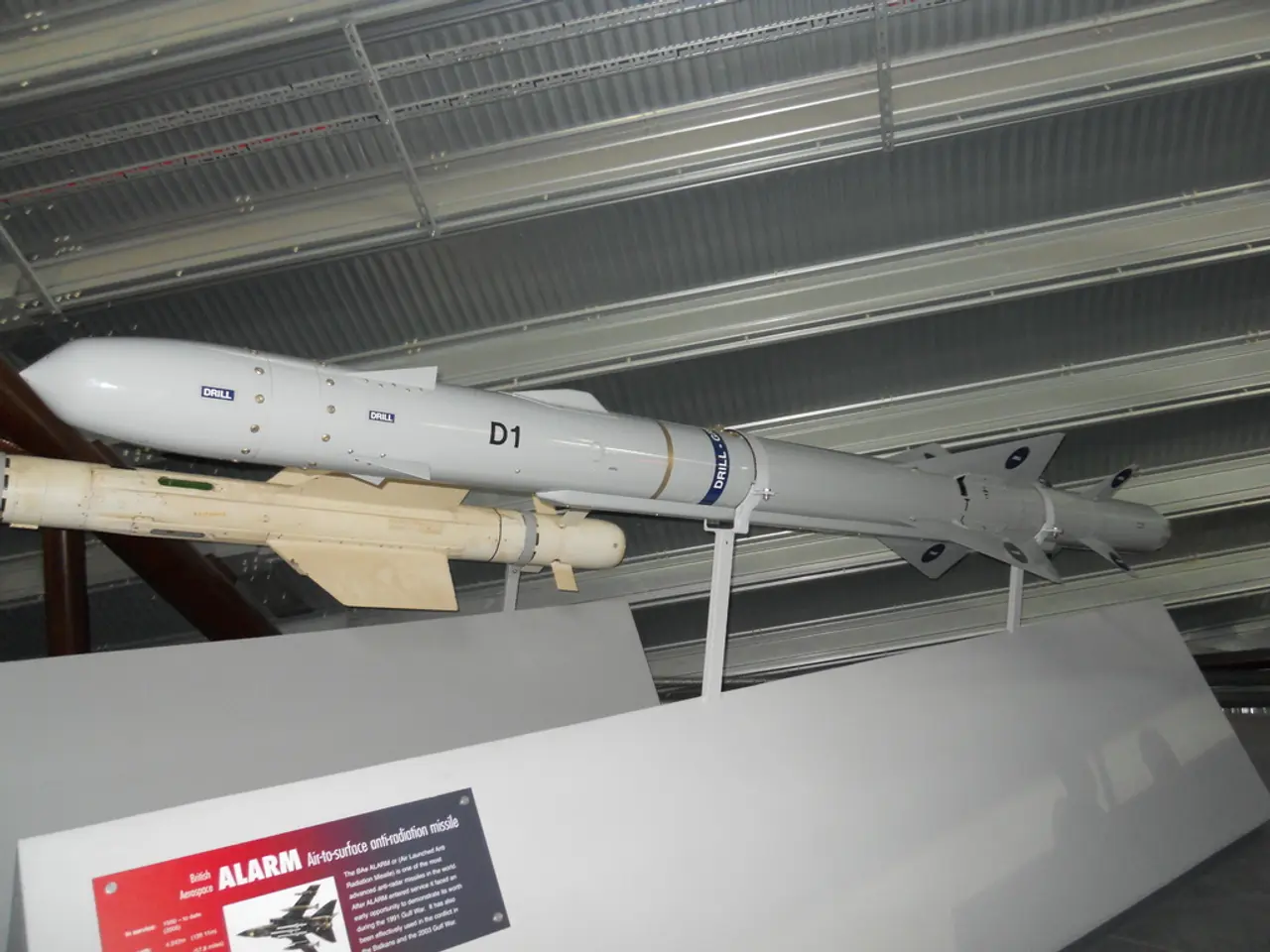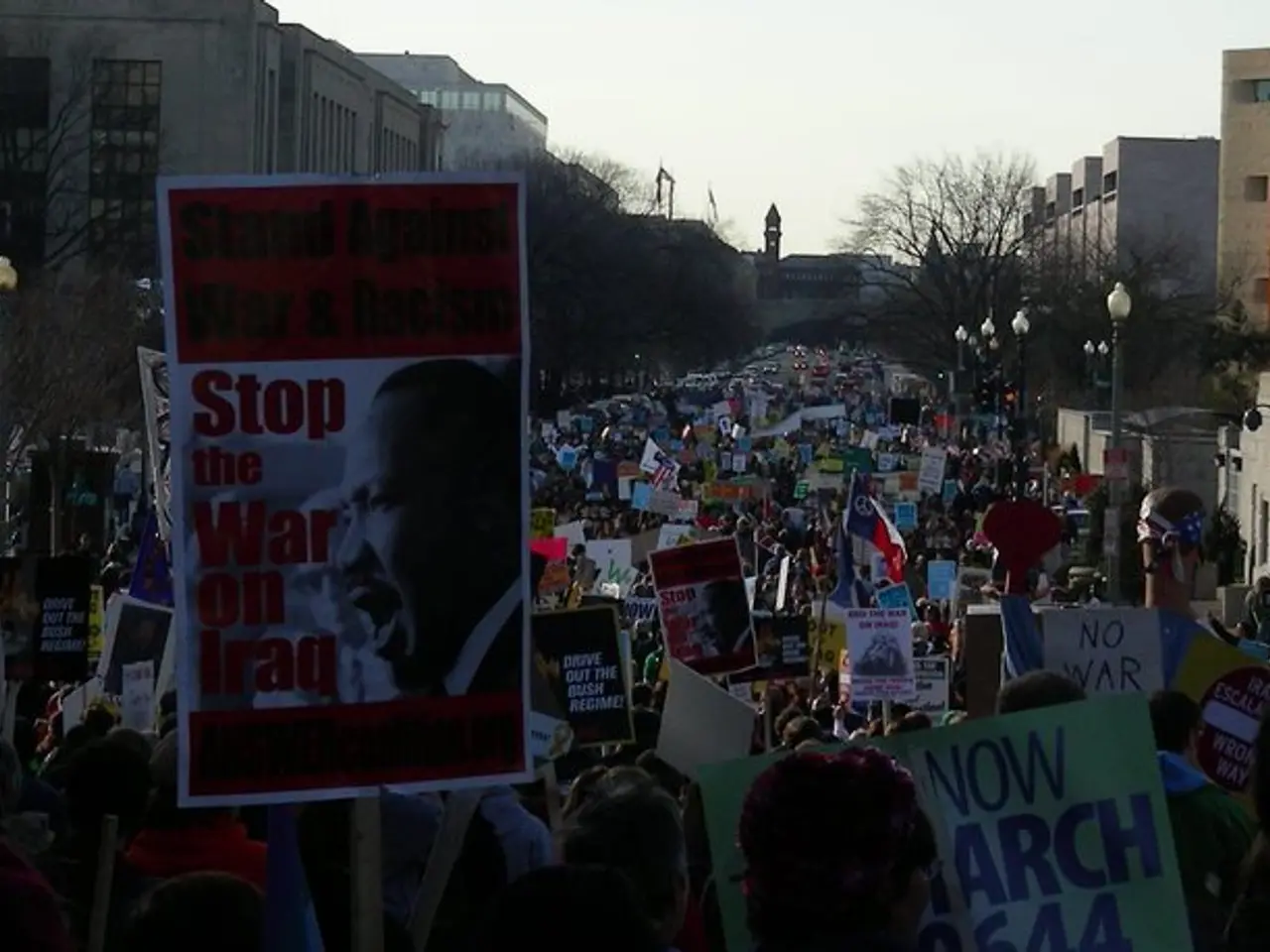Commemorating 1945: A Year of Reflection and Unity in Eastern and South-Eastern Europe
13th European History Symposium: Honoring the Past Amid Turbulent Era
In May 2025, the 13th European History Forum was held in Berlin, with the theme "80 Years of Narratives about the End of World War II." The event brought together scholars and historians from across Europe to discuss and reflect on the pivotal year of 1945, a year that marked the end of a devastating war and the beginning of a complex transformation.
For Eastern and South-Eastern Europe, 1945 is remembered primarily as the moment of the end of World War II in Europe, marked by Nazi Germany’s unconditional surrender on May 8, 1945, known as Victory in Europe Day (VE Day). This date is commemorated as the liberation from fascist occupation, the defeat of Nazi Germany, and the highly costly and transformative conclusion to years of brutal conflict on the Eastern Front, which included the Soviet Union and many Eastern European countries such as Poland, Hungary, Czechoslovakia, and the Balkans.
However, the anniversary of 1945 serves as a reminder of the complex legacy of the war's end. The Soviet Red Army’s advance through these regions was central to defeating Nazi Germany but also marked the onset of Soviet influence and eventually the establishment of communist governments across much of the region after the war. This dual legacy means that remembrance is often bittersweet: the war’s end brought peace and liberation from Nazi tyranny, but also paved the way for new political realities under Soviet dominance.
The commemoration of 1945 offers a potential catalyst for renewed European unity by reminding nations of their shared history of suffering and cooperation against fascism. The remembrance can promote dialogue and reconciliation, particularly between former adversaries and countries with complex histories under Nazi and Soviet rule. It emphasizes common values of peace, human rights, and collective security foundational to the European project post-Cold War.
Several initiatives are underway to foster mutual understanding and overcome historical divisions. For instance, the digital remembrance project "Light of the Fireflies" involved young people from Belgrade and Berlin visiting memorial sites, and a film and an app were developed to allow users to interactively visit the sites. The online platform dekoder.org published a large number of texts and documentaries on perspectives of the Second World War that had previously been largely marginalised, such as the women's perspectives on the war.
In Ukraine, the end of the Second World War is commemorated on 8 May, reflecting a deliberate alignment with European memory culture and a distancing from Soviet-era symbolism. Yaroslav Hrytsak from the Ukrainian Catholic University in Lviv discussed how the current conflict in Ukraine has shaped the way the country commemorates the end of the Second World War.
The pivotal year of 1945 is not just a historical event, but a reminder of the ongoing relevance of debates surrounding the war's end, particularly in light of Russia's war of aggression against Ukraine. Albrecht, the Executive Director of the Heinrich Böll Foundation, emphasized this point.
Remembering 1945 also involves acknowledging the complexities of the past. For example, the death marches remain under-researched to this day, likely because these crimes implicate ordinary German society, placing them in close proximity to the brutal events.
In conclusion, the commemoration of 1945 in Eastern and South-Eastern Europe serves as a platform to strengthen unity and collaboration among European nations today. By reflecting on common European experiences, initiatives like the ones mentioned above can help overcome historical divisions, foster mutual understanding, and sustain unity within the European Union and broader European institutions.
Engagement with a digital remembrance project like "Light of the Fireflies" can facilitate an interactive exploration of historical sites, fostering mutual understanding between young people from disparate regions such as Berlin and Belgrade.
The political significance of 1945 persists today, with the ongoing conflict in Ukraine serving as a profound reminder of the relevance of discussions surrounding the war's end, particularly in light of contemporary geopolitical tensions.







